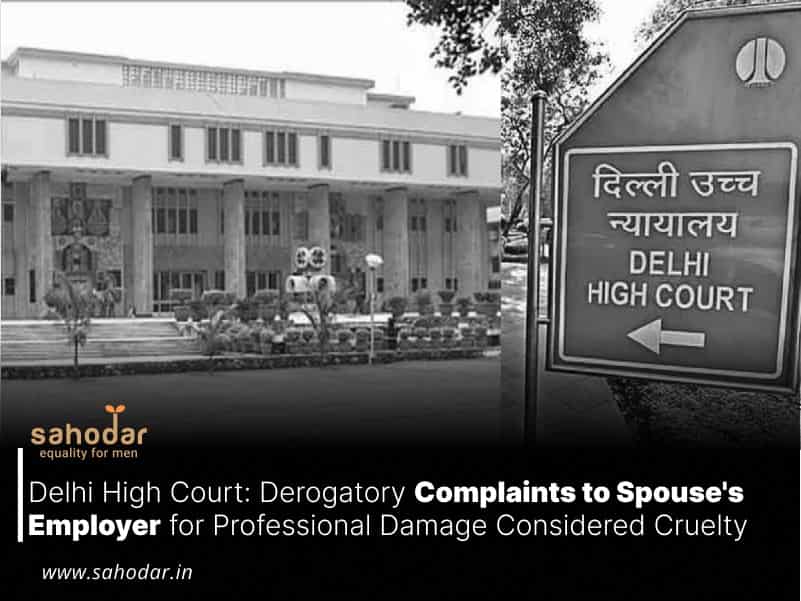The Delhi High Court has recently emphasized that making derogatory complaints to a spouse’s employer with the intention of damaging their professional reputation and financial stability constitutes cruelty, reflecting a lack of mutual respect vital for a harmonious marriage.
A division bench, comprising Justice Suresh Kumar Kait and Justice Neena Bansal Krishna, underscored that such actions not only inflict harm but also signify a breakdown in the fundamental pillars of goodwill essential for a healthy marital relationship.
The court asserted that simply claiming such complaints occurred post-separation does not absolve the offending spouse of the cruelty inflicted upon the other.
“Making derogatory complaints to the employer of a spouse, with the intent to tarnish their professional reputation and financial well-being, amounts to nothing short of cruelty,” the court declared.
These remarks came in the context of a divorce case where the husband sought separation on grounds of cruelty under Section 13(1)(ia) of the Hindu Marriage Act, 1955.
The court allowed the husband’s appeal against the family court’s decision to dismiss his divorce petition. The couple had been married in 2011 and cohabitated for a mere 2-3 months.
The husband alleged that the wife subjected him and his parents to abusive phone calls and lodged complaints with his employer, the RBI, to embarrass him in front of colleagues.
In contrast, the wife claimed desertion by the husband and child neglect, alleging mistreatment and neglect by her in-laws.
The court observed that the family court failed to recognize that defamatory language exchanged between spouses, especially directed towards in-laws, not only besmirches individuals’ dignity but also corrodes trust vital for marital harmony.
“The wife’s acknowledgment of sending messages containing derogatory language towards the husband’s father reflects a lack of respect and consideration in the relationship, undermining the foundational principles of mutual respect and support crucial for a healthy marriage,” the court remarked.
Furthermore, the court suggested that the spouses’ prolonged involvement in litigation spanning over a decade could also be construed as cruelty.
The bench noted that the wife’s failure to appear for cross-examination indicated a deliberate choice to not substantiate her allegations against the husband.
It concluded that by leveling false accusations of adultery, complaining to the husband’s employer, making derogatory remarks against his father, and initiating multiple litigations, the wife inflicted mental cruelty upon the husband, falling within the purview of Section 13(1)(ia) of the Hindu Marriage Act.
“The wife’s brief cohabitation period of less than a year with the husband and her deliberate avoidance of his parents and their child deprived the husband of marital happiness and fatherhood,” the court concluded.

